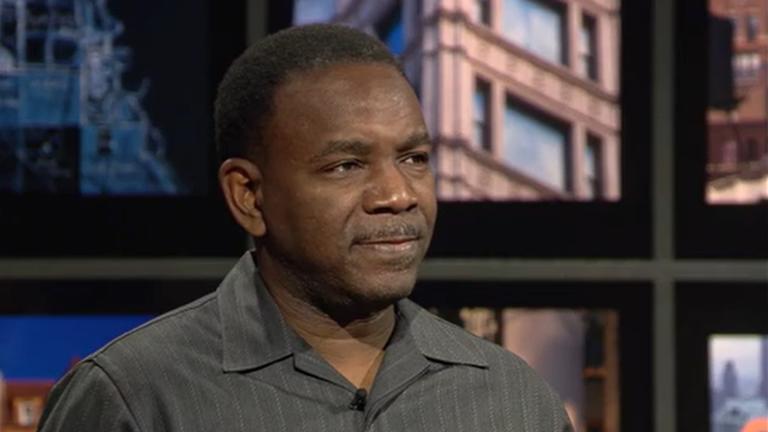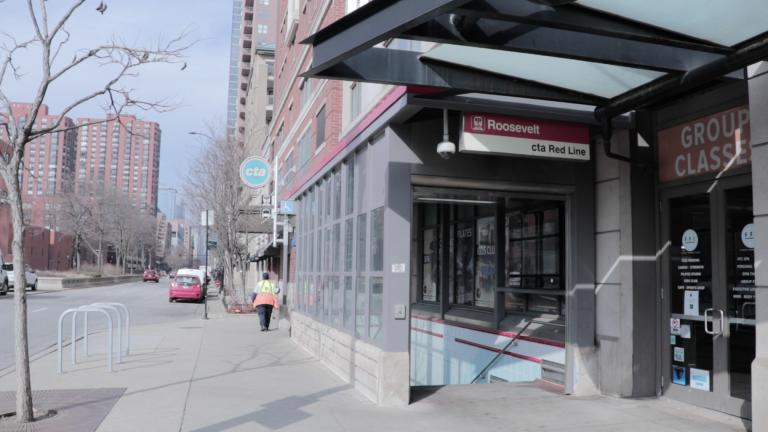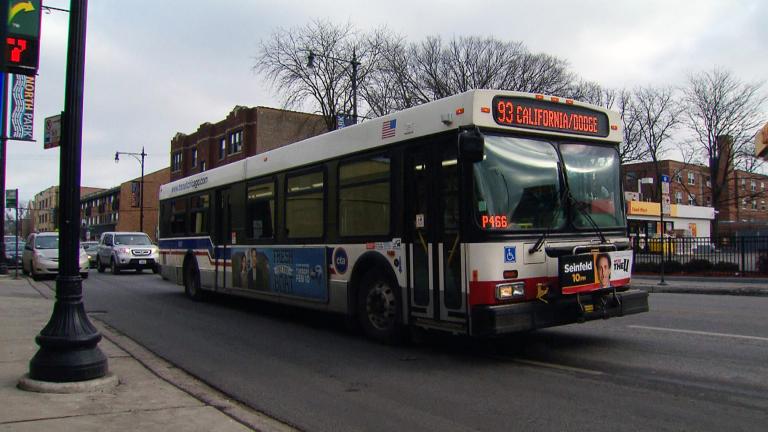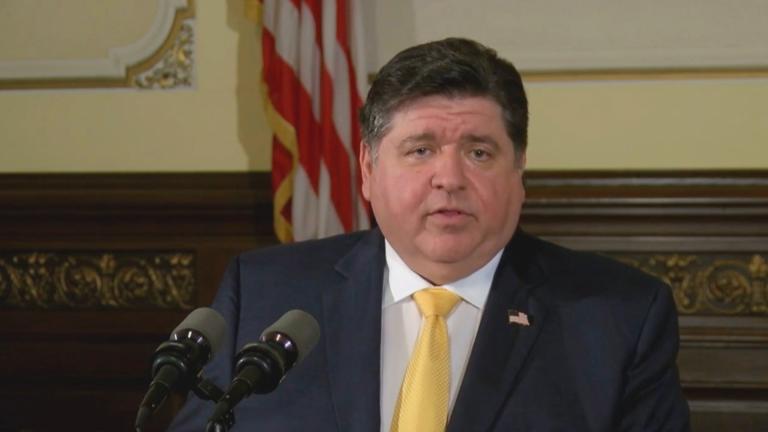Two state lawmakers say they want to merge the Chicago area’s three separate public transit agencies into one – and funnel $1.5 billion in additional annual funding into the new system.
The proposed new entity, the Metropolitan Mobility Authority (MMA), would replace the CTA, Metra, Pace and the Regional Transportation Authority. Backers of the MMA say siloed agencies have long competed for funding, failed to integrate fares for passengers and aren’t delivering the service riders should be able to depend on.
“My vision for the future of transit is that one day people will choose to get on a bus or on a train first, rather than to drive in their cars,” said state Rep. Eva-Dina Delgado (D-Chicago), the legislation’s sponsor in the Illinois House. “I imagine a time where riders will enjoy a seamless experience where they can easily jump on a bus or a train, feel safe, feel comfortable, pay one universal fare and arrive at their destination on time.”
With the Chicago area’s transit system facing an expected $730 million fiscal cliff in early 2026 after COVID-19 relief funding runs out – and with ridership and its attendant revenue still sluggish – supporters of the effort say it’s time to reverse chronic underfunding of public transportation. But they also argue that funding without governance reform won’t improve transit equity or accessibility.
“We need to not only address the impending fiscal cliff, but double down on reimagining public transit. We need both integrated management and increased funding,” said state Sen. Ram Villivalam (D-Chicago), one of the bill’s backers and the leader of the Illinois Senate’s Transportation Committee.
The new authority would be overseen by three directors chosen by the governor; five of the mayor of Chicago’s choosing; five picked by the president of the Cook County Board; one each chosen by the chief executives of DuPage, Kane, Lake, McHenry and Will counties; and one chosen by the directors.
It would also include six non-voting members, including representatives of organized labor, people with disabilities and the business community.
“The upcoming fiscal cliff facing transit is a moment that demands we reimagine transit so it is the first choice for people to travel, not a service of last resort,” said Derek Douglas, president of the Civic Committee of the Commercial Club of Chicago. “To achieve this goal, we need reforms. We cannot just throw more money at the same system at the same problems and expect a different result.”
In response to the proposed merger, the RTA did not take a stance on governance reforms, but echoed lawmakers’ calls for more transit money.
“Public transit operations in the Chicago region are chronically underfunded in comparison to our peer regions – and this lack of support predates the pandemic,” RTA officials said in a statement. “We welcome discussion on reforms that strengthen coordination, efficiency, and accountability across the regional transit system. Riders expect and deserve faster, more reliable service, and a safer and more accessible system. But reforms must come with the necessary funding to upgrade service and maximize transit’s impact on the region’s economy, climate, and access to opportunity for all residents.”
The proposed overhaul follows a Chicago Metropolitan Agency for Planning report commissioned by the state legislature that laid out two options to overhaul the region’s transit system. One would have beefed up the RTA’s ability to coordinate transit service, but left CTA, Metra and Pace in place. The other, which this legislation would put into action, involves the wholesale merger of the current agencies.
“The issue of public transit touches every facet of our residents’ lives in the region. We’ve been having ongoing conversations with stakeholders from the business community, the labor community, county board chairs, the mayor’s office and everyone in between,” Villivalam said. “We’re committed to continuing those conversations. I think there’s an openness, I think everyone understands the need for a system that is reliable, safe, affordable, equitable, and environmentally conscious.”
The measure’s supporters say they’ve been having conversations with transit and legislative leaders, but didn’t say whether they plan to try moving the bill during the current spring session or wait until the veto session in the fall.
They also did not identify specific funding streams for the $1.5 billion additional annual money, but Villivalam said that additional cash for transit will benefit residents of Black and Latino communities who face disproportionately long commutes.
“That is … at its core an equity issue, which means it’s harder for those communities to get their job, their school, their hospital,” he said. “We need to tackle the issue of what type of service we would like to see for our riders and for our residents. Then we can talk about the funding that’s needed.”
Urban planner Steven Vance, a volunteer member of Urban Environmentalists Illinois, said a truly integrated regional transit system will benefit everyone who lives in the region, whether or not they take public transportation. He said he’s eager to dig into the specifics of the bill – and noted that a merger like this could be quite complex.
“I think, to set some expectations, that might take a couple of years,” Vance said. “We may not see benefits immediately, except … with the $1.5 billion of additional funding – that could have immediate benefits. But the organizational benefits, the cost savings and the further on integration could take a few years. And I think that’s okay, because I think the juice is going to be worth the squeeze.”
Contact Nick Blumberg: [email protected] | (773) 509-5434 | @ndblumberg







